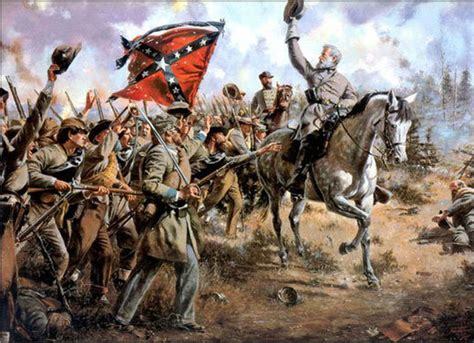What You Don’t Learn About the Civil War in School

The Skeptic’s Guide to American History (2012)
Episode 8 The Civil War’s Actually Turning Points
Film Review
If they cover the Civil War at all, most high school history classes, pay most attention to the Battle of Gettysburg (July 1-3, 1863), the bloodiest battle ever on the North American continent. Despite the high number of casualties on both sides (dead and wounded: Union 23,000, Confederacy 28,000), neither side prevailed.
The battle of Antietam (aka the Battle of Sharpsburg) Maryland, the next day was far more consequential. In this battle Union General George B McClellan halted Lee’s invasion of Maryland, but his army had suffered heavier losses and Lee successfully withdrew his army back to Virginia. McClellan’s refusal to pursue Lee’s army led President Lincoln to remove him from command.
Although the battle was tactically inconclusive, Lincoln used the strategic victory (Confederate troops withdrew first), as an excuse to enact the Emancipation Proclamation. This executive order was purely symbolic as it only freed slaves in the Confederate states. Lincoln’s primary goal was to discourage Britain (which had a large and vocal anti-slavery movement) from entering war on the side of the Confederacy.
For his part, Confederate General Robert E Lee (considered invincible prior to Gettysburg) had embarked on a campaign to attack northern cities (starting with Gettysburg Pennsylvania) in hopes of bringing both Britain and France into the war on the side of the Confederacy. Most historians believe if he had prevailed in just one northern battle, Britain (and eventually France) would have provided military support to the Confederacy.*
Stoler believes that Lee was a far more skilled military tactician than most of the Union generals prior to Ulysses S Grant. Grant’s capture of the Confederate city of Vicksburg (Mississippi) would split Confederate forces in two, while reopening Union access to the Mississippi River.
Based on this victory on March 1864, Lincoln promoted Grant (who previously commanded the Army of Tennessee) to Lieutenant General and put him in charge of all the Union Armies.
Grant’s Overland Campaign was a series of brutal battles fought in Virginia for seven weeks during May and June 1864. Despite incurring more than 17,000 casualties, Grant continued his campaign to push Confederate troops out of Virginia. His reckless disregard of Union casualties earned him the nickname of “The Butcher” and threatened Lincoln’s reelection campaign.
In 1864, the Democrats nominated former Union general George McClellan as the peace candidate to oppose Lincoln. McClellan pledged to recognize the Confederacy if elected.
In the end, the Union army’s victory’s at Mobile Bay (Alabama) and Cedar Creek (Virginia) would ensure Lincoln’s victory.
*Both the French and British were tempted to support the Confederacy because it was their advantage to deal with two smaller weaker countries than a large strong one. French support had been decisive in the rebels’ victory during the War of Independence.
https://pukeariki.kanopy.com/video/civil-wars-actual-turning-points
The Most Revolutionary Act
- Stuart Jeanne Bramhall's profile
- 11 followers



